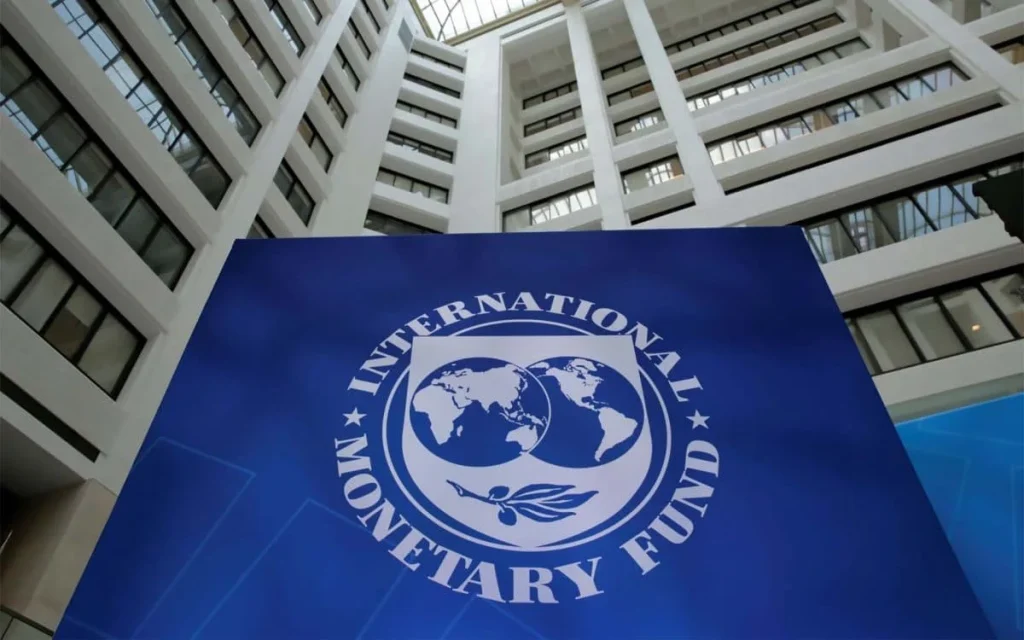Nigeria captured international attention at the 2025 International Monetary Fund (IMF) and World Bank Annual Meetings in Washington.
Bold policy shifts by the Nigerian government earned widespread applause. However, leaders also received pointed warnings regarding mounting debt, high government spending, and the persistent reliance on oil revenue.
IMF Upgrades Growth Outlook Amid Fragile Gains
The IMF officially upgraded Nigeria’s economic growth forecast for 2025 to 3.9%, a notable increase from the previous projection of 3.4%.
The Fund attributed this positive revision to several factors: stronger underlying economic fundamentals, a recovery in oil output, and renewed confidence from international investors since key mid-2023 reforms were implemented.
Nevertheless, the IMF stressed that these gains remain delicate. Without tighter control over national finances, increasing debt service costs and large fiscal gaps could derail the current progress.
CBN Governor: “No Retreat on Reforms”
Leading Nigeria’s delegation, Central Bank Governor Olayemi Cardoso vowed an unwavering commitment to the reform agenda.
“Reform fatigue is not an option. This is a marathon Nigerians will soon feel real benefits as inflation falls and growth rises.”
Cardoso highlighted several recent positive indicators:
- Inflation Reduction: Inflation has decreased for six consecutive months, hitting 18.02% in September—the lowest rate recorded in three years.
- Currency Stability: The difference between the official and parallel market rates for the naira has dropped to under 2%.
- Foreign Reserves: Reserves exceed $43 billion, which provides cover for over 11 months of imports.
Cardoso cited these metrics as “proof of rebalanced finances and restored credibility.” He credited tight monetary policy, exchange rate flexibility, and better coordination with the fiscal authorities for the positive shift.
Economic Rebound and Persistent Risks
IMF experts acknowledged the genuine nature of Nigeria’s economic rebound. This recovery is partially supported by an economy that proved larger than expected, thanks to the strength of the digital, service, and informal sectors. The IMF projects inflation will continue to ease to 23% in 2025 and 22% in 2026.
A top IMF official defended the naira’s switch to a managed float system. They argued that “A flexible currency isn’t a weakness it’s an adjustment tool for competitiveness and investment.”
Still, several red flags were raised:
- Fiscal Deficit: Projected to increase from 2.9% of GDP in 2025 to 3.7% in 2026.
- Debt Servicing: The cost of servicing debt is crowding out critical funding for education, health, and infrastructure.
- Debt-to-GDP Ratio: Currently at 39.3% in 2024. This ratio is expected to decrease slightly, but only if future borrowing remains disciplined.
The core message from the Fund is clear: The government must boost non-oil taxes, digitize collection methods, and strictly avoid taking on risky new loans.
Diversification, Illicit Funds, and Technology
With global oil prices volatile, economic diversification is deemed urgent. The IMF emphasized the need for a modern tax system where citizens “see value in every naira paid” to increase compliance.
IMF Managing Director Kristalina Georgieva supported Nigeria’s efforts against illicit financial flows. “Tracking dirty money can plug massive leaks and fund real growth,” she noted. She also cautioned that the rise of crypto and digital payments must be accompanied by strong regulatory oversight to prevent tax evasion.
Trade and Tech Momentum
For the first time in several years, Nigeria is posting a 6% GDP trade surplus. This surplus is fueled by robust export growth and increased local production.
Cardoso admitted that the trade partnership involving the Chinese currency swap had underperformed.
However, he stated that a “win-win” redesign of the agreement is currently underway. He also praised the recent bank recapitalization initiatives and partnerships with financial technology firms.
“Innovation and regulation must walk together. Our fintechs are Nigeria’s global ambassadors,” he affirmed.
Inclusive Growth and Africa’s AI Moment
Finance Minister of State Dr. Uzoka-Anite promised that macro stability would directly translate into real job creation. She highlighted job growth particularly in agriculture, infrastructure, and digital sectors. World Bank-backed programs will also expand credit access for small businesses and women entrepreneurs.
At a panel on technology, UBA Chairman Tony Elumelu urged massive investment in the tech sector. “AI in farming, energy, and healthcare can leapfrog Africa but only with infrastructure and capital access,” he argued. He cautioned that leaders must ensure that AI “spread wealth, not widen gaps.”
Managing Director Georgieva summarized the overall sentiment. She concluded,
“Nigeria is on the right path. These reforms hurt now but staying the course turns pain into jobs, hope, and lasting prosperity.”
READ MORE: Tanzania Votes Amid Crackdowns and Calls for Fair Play






